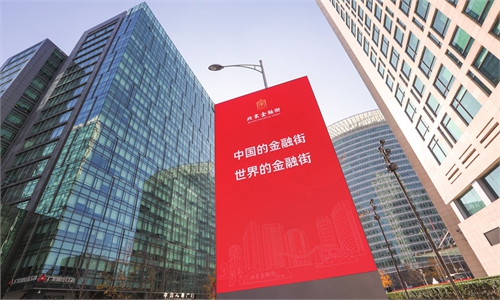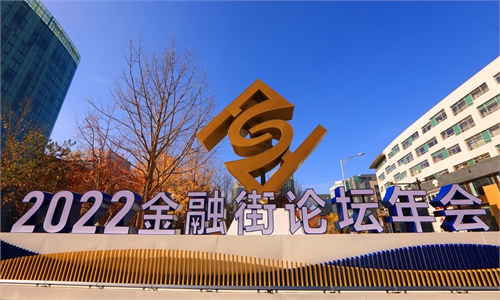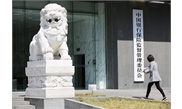Quality of Chinese listings steadily improves as nation shifts toward higher-quality devt: officials at key forum
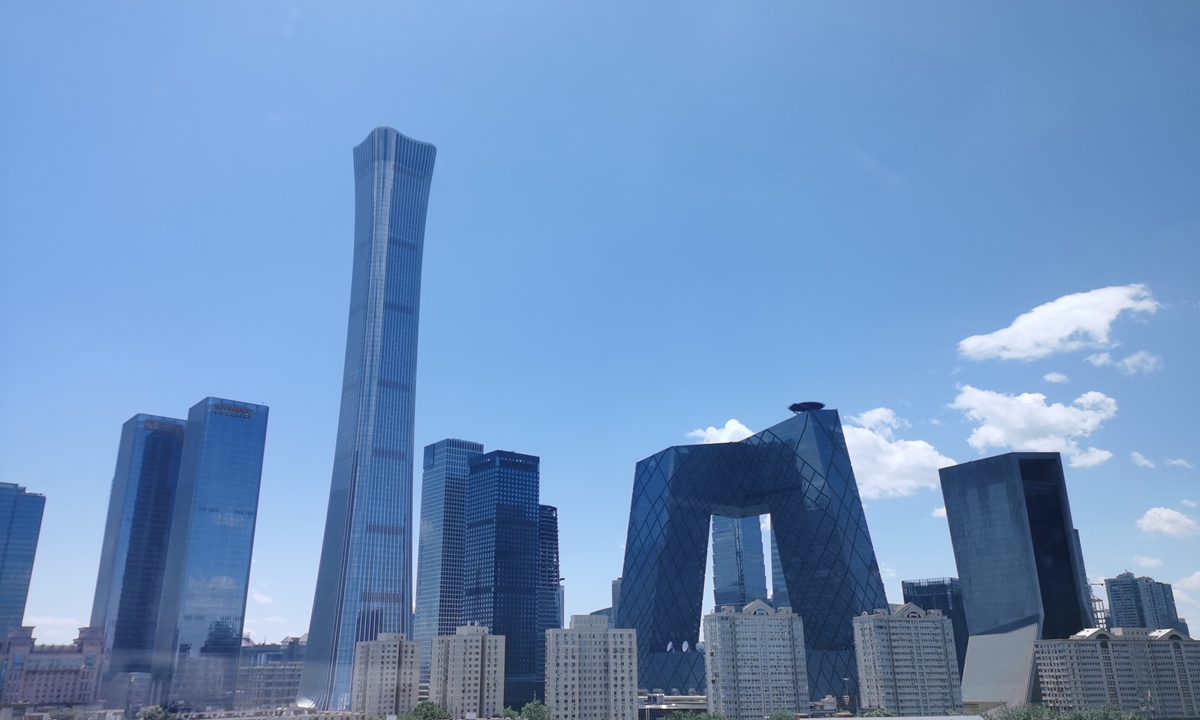
Buildings in Beijing CBD are seen under blue sky on Sunday. Photo: Li Lei/GT
China has made substantial headway in improving the quality of listed firms, a microcosm of the economy's shift toward higher-quality development and its restructuring toward tech- and innovation-oriented growth, securities regulatory officials, bourse heads and business executives told an influential financial forum in Beijing on Tuesday.Citing robust statistics that point to a surge in listings and a structural transition to weigh toward emerging high-tech firms, they are betting on an improvement in regulatory supervision and revised listing rules to accommodate more innovative and growth businesses amid the national push for self-sufficiency in technology.
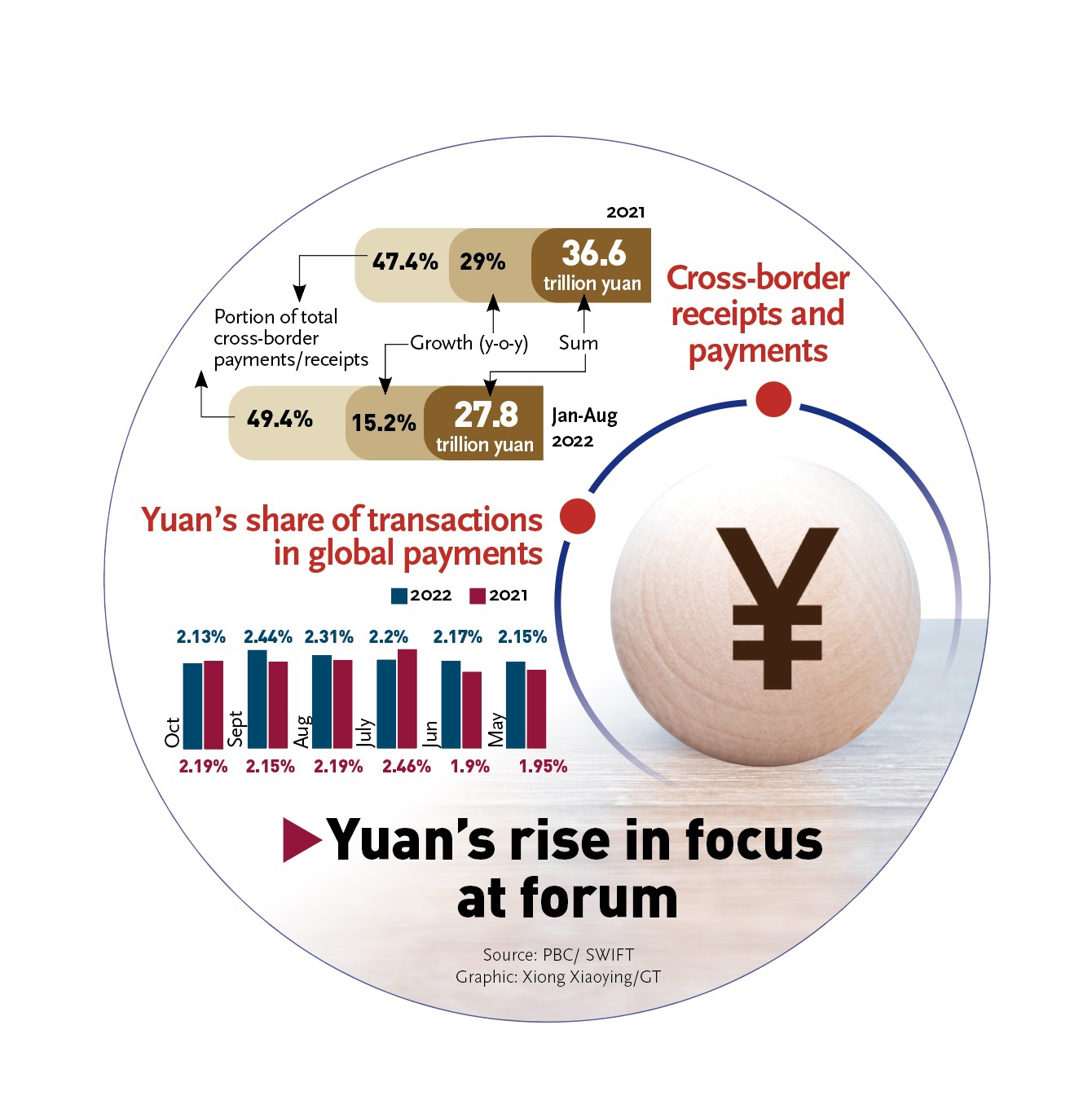
The securities regulator has over recent years gone all out to push for reforms and trials of a registration-based IPO system, with continued optimization of IPO standards, tremendously boosting the appeal of the capital markets for premium firms, Li Ming, director of the Department of Listed Company Supervision of the China Securities Regulatory Commission (CSRC), said on Tuesday at a panel discussion of the Financial Street Forum 2022.
Since December 2020, the securities regulator has carried out a two-year special action on corporate governance, the first "comprehensive physical examination" of listed firms' governance over the past three decades, which pinpointed 8,073 problems and rectified 7,702 of them, or an overhaul ratio of over 95 percent, Li said.
More such efforts are in the pipeline, with the CSRC official revealing that the regulator has formulated a new three-year action plan for improving the quality of listings that would feature the creation of a regulatory "toolbox" for listed firms.
Meanwhile, crystallizing a hawkish stance on delistings to remove as many as possible of those deemed unfit for listings, Li disclosed that forced delistings have totaled 42 so far this year, up from 17 in 2021.
Forced delistings on the Shenzhen Stock Exchange have hit 24 so far this year, approximating the combined number for the past three years, an indication that a virtuous market ecosystem with "survival of the fittest" has taken shape at a quickened pace, Sha Yan, general manager of the Shenzhen Stock Exchange, said at the same panel discussion on Tuesday.
In a major milestone for the country's capital markets, the number of firms listed on the Chinese mainland market has recently topped 5,000, a surge of nearly one-third compared with the end of 2019 and nearly doubling the level a decade prior, official data showed.
More strikingly, the number of listings on the STAR Market in Shanghai, the ChiNext board in Shenzhen and the Beijing Stock Exchange (BSE) stood at 1,831 as of Friday, accounting for 37 percent of the total A-share firms, suggesting that the capital market has increasingly turned out to be a gathering of high-tech, innovation-oriented and "little giants" specializing in niche markets and boasting emerging technologies, according to Li.
More than half of the 5,000 listings are from strategic emerging industries, and profits at listed firms engaging in the real economy make up 57.3 percent of all listed firms, outnumbering the figure for listed financial businesses, he continued, speaking of an apparent improvement in the structural imbalance between the financial sector and the real economy.
The STAR Market, known for hosting firms that dovetail with the country's vision of tech self-efficiency, is seen as exemplifying the capital market-fueled economic rebalancing.
The sci-tech attributes of listings on the STAR Market could be assessed from whether IPO hopefuls truly hinge their future development on their tech commitments and in line with the national strategy, Gao Chunhai, chairman of Traffic Control Technology Co, told the Global Times on Tuesday on the sidelines of the forum.
The Beijing-based firm, mainly engaged in contracting of urban rail transit signal systems, was among the first batch of listings that debuted on the Shanghai market in July 2019.
The sci-tech requirements also weigh whether the hopefuls feature indigenousness and controllability and contribute to supply chain completeness, among other factors that would pave the way for such firms to tackle bottleneck issues, Gao said.
Since the BSE kicked off trading last November, an increasing number of small and medium-sized businesses have gained access to new opportunities, Xiang Youliang, chairman of Honsun (Nantong) Co, a BSE-traded healthcare equipment maker, told the Global Times on Tuesday.
The bourse has rolled out policies to create a sound environment in favor of companies' capital operations, Xiang remarked.
The A-share market is now the world's second-largest and the IPO amount on the Shanghai bourse sat atop global exchanges in the first three quarters, while money raised through IPOs on the Shenzhen bourse stood at No.2 on the rankings during the period, media reports said.
In a speech via video to the Tuesday meeting, Nicolas Aguzin, chief executive of Hong Kong Exchanges and Clearing (HKEX), the operator of Hong Kong's stock exchange, also offered an account of improved market quality from the local viewpoint.
"At HKEX, we like to keep our foot on the pedal so that we continue to enhance the quality of our markets, grow connectivity, drive governance standards and promote the long-term sustainable development of capital markets," Aguzin said.
He cited local listing reforms of 2018 that made Hong Kong one of the world's top financing hubs for new-economy firms.
Over 200 such companies have listed in Hong Kong, raising over HK$900 billion ($115.23 billion) since these reforms took place. Among them, 178 are from the Chinese mainland.
The Hong Kong market, ideally positioned as a super-connector between East and West, is eyeing even more growth. The HKEX recently published a consultation paper on a set of proposed new listing rules that are intended to enable specialized pre-revenue technology firms to raise capital in Hong Kong.
"We expect this will have an amplifying effect on the growth of a range of new-economy sectors, such as artificial intelligence, green tech, electric vehicles and more," Aguzin said, describing it as a game-changer to elevate the bourse's position as a listing venue of choice for innovative companies from around the world.
